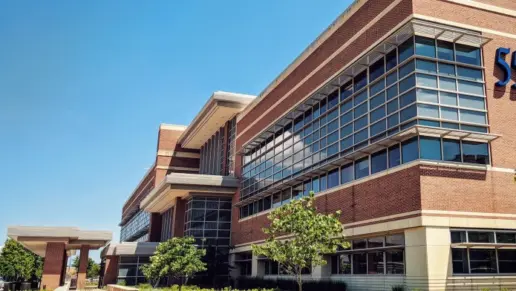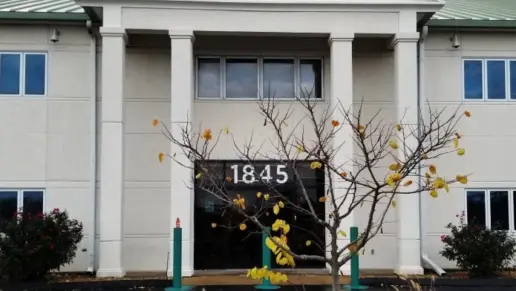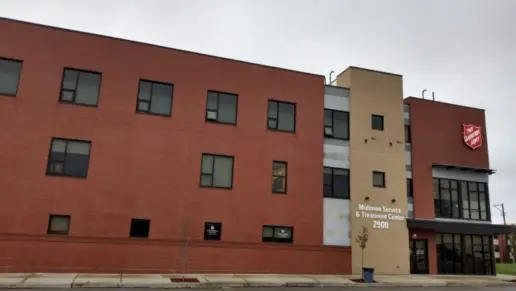I was there twice the first time i was not ready and didn't want it the second time i completed successfully the staff are amazing and loving i would honestly recommend anybody that needs treatment to try to go there-Isaiah willis
About FCC Behavioral Health – Adolescent RISE
FCC Behavioral Health’s RISE treatment center is an alcohol and substance abuse recovery center in West Plains, Missouri. RISE exclusively serves adolescents ages 12 through 17 with their Comprehensive Substance Abuse Treatment and Rehab (CSTAR) programs. The facility shares space with the larger FCC Behavioral Health campus, providing a relaxing setting with modern amenities.
RISE accepts clients regardless of gender, sexuality, or religious background. The only qualifier for treatment is a licensed medical professional’s diagnosis of substance use.
The 60 day inpatient program sees clients live at the RISE center for the duration of the program, where they receive up to 60 hours of treatment each week. Days are highly structured, revolving around group and individual therapy, counseling, wellness activities, and free time. Each treatment plan is crafted around a client’s specific needs.
Clients are encouraged to socialize during their stay to offer support and learn from one another’s experiences. Staff are present 24 hours daily to provide close supervision and clinical support as needed.
The day treatment program does not require on campus residency. Instead, clients visit the facility throughout the week to receive therapy and counseling from their support team. When they meet and for how long varies based on the client’s schedule to better accommodate everyone’s needs.
Outpatient treatment is based on a structured schedule similar to the inpatient program. However, clients stay home and may continue working and attending school during treatment. Thus, it’s ideal for those who come from stable living situations and don’t require as much monitoring.
This variation of the day treatment program extends services beyond the RISE facility to a client’s home and school. Clients who complete inpatient or outpatient care may be transitioned into this program as a means of ongoing aftercare. The goal of supported recovery is to provide a continuing foundation as clients learn to use the coping skills they learned in treatment.
FCC Behavioral Health RISE is accredited by the Commission on Accreditation of Rehabilitation Facilities and is a National Health Service Corp site.
Rehab Score
Other Forms of Payment
Medicaid is a state based program that helps lower-income individuals and families pay for healthcare. Medicaid covers addiction treatment so those enrolled can use their coverage to pay for rehab. When a program accepts Medicaid the client often pays very little or nothing out of their own pocket.
Private insurance refers to any kind of healthcare coverage that isn't from the state or federal government. This includes individual and family plans offered by an employer or purchased from the Insurance Marketplace. Every plan will have different requirements and out of pocket costs so be sure to get the full details before you start treatment.
Self-pay involves paying for treatment out of your own pocket. You can use savings or credit, get a personal loan, or receive help from family and friends to fund your treatment. If you don't have insurance or your insurance plan doesn't cover a specific program, self-pay can help ensure you still get the care you need.
Financial aid can take many forms. Centers may have grants or scholarships available to clients who meet eligibility requirements. Programs that receive SAMHSA grants may have financial aid available for those who need treatment as well. Grants and scholarships can help you pai for treatment without having to repay.
Sliding scale payments are based on a client's income and family size. The goal is to make treatment affordable to everyone. By taking these factors into account, addiction recovery care providers help ensure that your treatment does not become a financial burden to you or your family, eliminating one barrier to care.
Medicare is a federal program that provides health insurance for those 65 and older. It also serves people under 65 with chronic and disabling health challenges. To use Medicare for addiction treatment you need to find a program that accepts Medicare and is in network with your plan. Out of pocket costs and preauthorization requirements vary, so always check with your provider.
Military members, veterans, and eligible dependents have access to specific insurance programs that help them get the care they need. TRICARE and VA insurance can help you access low cost or no cost addiction and mental health treatment. Programs that accept military insurance often have targeted treatment focused on the unique challenges military members, veterans, and their families face.
Addiction Treatments
Levels of Care
Treatments
The goal of treatment for alcoholism is abstinence. Those with poor social support, poor motivation, or psychiatric disorders tend to relapse within a few years of treatment. For these people, success is measured by longer periods of abstinence, reduced use of alcohol, better health, and improved social functioning. Recovery and Maintenance are usually based on 12 step programs and AA meetings.
Drug rehab in Missouri usually involves several phases: detox, rehab, and aftercare. The rehab phase may include a combination of inpatient and outpatient treatments, as the individual moves through a continuum of care on their recovery journey.
Co-Occurring Counseling is a service that provides counseling to those identified as having both a substance use diagnosis and a mental health diagnosis. Co-occurring issues are integrated into the recovery care plan and are provided by qualified personnel. Co-occurring specific groups are also provided. If it is determined that a person(s)-served needs a psychiatric evaluation, this service can be coordinated through the agency telemedicine program. The program is equipped with telemedicine equipment that will allow us to access agency psychiatrists as needed for routine and/or crisis psychiatry services.
Opioid rehabs specialize in supporting those recovering from opioid addiction. They treat those suffering from addiction to illegal opioids like heroin, as well as prescription drugs like oxycodone. These centers typically combine both physical as well as mental and emotional support to help stop addiction. Physical support often includes medical detox and subsequent medical support (including medication), and mental support includes in-depth therapy to address the underlying causes of addiction.
Substance rehabs focus on helping individuals recover from substance abuse, including alcohol and drug addiction (both illegal and prescription drugs). They often include the opportunity to engage in both individual as well as group therapy.
Clinical Services
Cognitive Behavioral Therapy (CBT) is a therapy modality that focuses on the relationship between one's thoughts, feelings, and behaviors. It is used to establish and allow for healthy responses to thoughts and feelings (instead of unhealthy responses, like using drugs or alcohol). CBT has been proven effective for recovering addicts of all kinds, and is used to strengthen a patient's own self-awareness and ability to self-regulate. CBT allows individuals to monitor their own emotional state, become more adept at communicating with others, and manage stress without needing to engage in substance abuse.
Family Therapy is strongly encouraged and is scheduled on a case-by-case basis in order to promote access to services. The Family Therapist works directly with the family to schedule appointments. Family Therapy is a planned, face-to-face, goal oriented therapeutic interaction with a qualified staff member in accordance with an individualized recovery care plan. The Family Therapist works with each family to identify family strengths, needs and preferences. The purpose of family therapy is to address and resolve problems in family interaction related to the substance use problem and recovery.
Group Counseling is face-to-face, goal oriented therapeutic interaction among a counselor and two (2) or more adolescent’s as specified in individual recovery care plans designed to promote the adolescent’s functioning and recovery through personal disclosure and interpersonal interaction among group members. The usual and customary size of group counseling sessions is eight (8) adolescent’s and shall not exceed twelve (12) adolescent’s in order to promote full participation, disclosure and feedback. Specialized group counseling topics include, but are not limited to: Moral Reconation Therapy, Anger Management, Relapse Prevention, gender specific groups, trauma groups and co-occurring specific groups.
Individual Counseling is a structured, goal-oriented therapeutic process in which the adolescent interacts on a face-to-face basis with a counselor in accordance with the individual’s rehabilitation plan in order to resolve problems related to substance use which interferes with the person(s)-served functioning. Various treatment modalities are provided by appropriately trained staff to include, but are not limited to: Motivational Interviewing, Cognitive Behavioral Therapy, Moral Reconation Therapy, Integrated Dual Disorders Treatment and Relapse Prevention Therapy.
Life skills trainings involve all the skills a person must have in order to function successfully in the world. These include time management, career guidance, money management, and effective communication. Truly successful addiction recovery is based on the ability to not only live substance-free, but to thrive. Life skills teaches the practical necessities of functioning in society, which sets clients up for success in life, and therefore sobriety.
Motivational Interviewing (MI) is a clinical approach to helping people with substance abuse issues and other conditions shift behavior in positive ways. It is more goal-oriented than traditional psychotherapy, as MI counselors directly attempt to get clients to consider making behavioral change (rather than wait for them to come to conclusions themselves). Its primary purpose is to resolve ambivalence and help clients become able to make healthy choices freely.
Trauma therapy addresses traumatic incidents from a client's past that are likely affecting their present-day experience. Trauma is often one of the primary triggers and potential causes of addiction, and can stem from child sexual abuse, domestic violence, having a parent with a mental illness, losing one or both parents at a young age, teenage or adult sexual assault, or any number of other factors. The purpose of trauma therapy is to allow a patient to process trauma and move through and past it, with the help of trained and compassionate mental health professionals.
Accreditations

The Commission on Accreditation of Rehabilitation Facilities (CARF) is a non-profit organization that specifically accredits rehab organizations. Founded in 1966, CARF's, mission is to help service providers like rehab facilities maintain high standards of care.
CARF Accreditation: Yes
Contact Information
3411 Division Drive
West Plains, MO 65775


